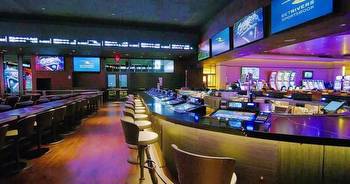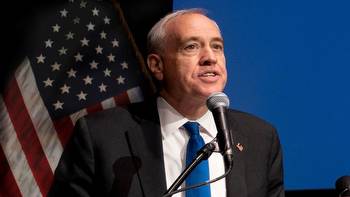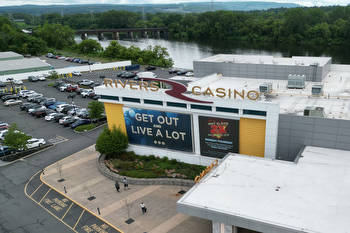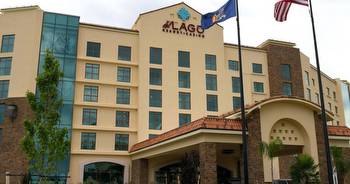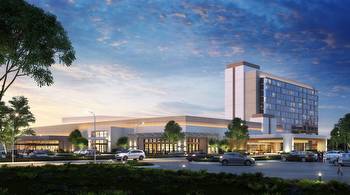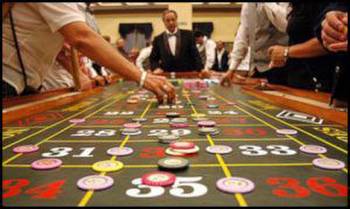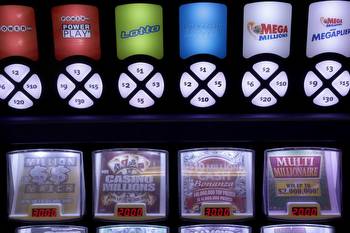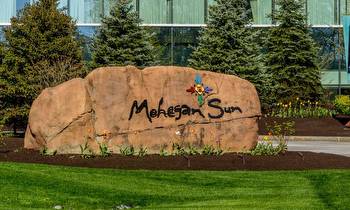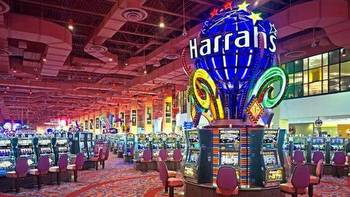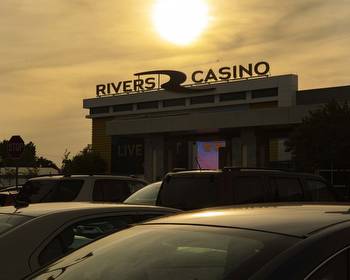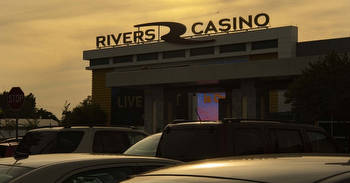More money rolling into state's casinos, less tax being collected
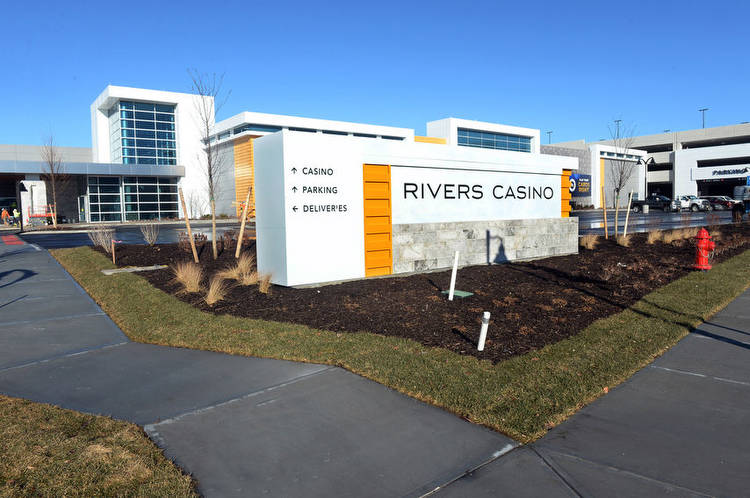
SCHENECTADY — The slot machine tax reduction offered to New York’s casinos after COVID cut into their business appears to be working out well for them.
All four casinos not owned by Indian nations saw big jumps in the gross revenue from gamblers and in the net gaming revenue left after paying gamblers their winnings.
But even with this increase in gross and net revenue, three of the four saw their tax bills shrink.
In Schenectady, Rivers Casino and Resort — which had been paying the highest slot tax rate among the four — saw its tax rate drop from 45% to 30%.
Patrons played $1.57 billion in the Rivers slots from April 1, 2021, to March 31, 2022, but won back only 90.7% of it. The $137 million they lost provided nearly three-quarters of the casino’s gross gaming revenue for that fiscal year.
(Table game and sports wagering revenues are taxed at the relatively low rate of 10%, resulting in a much smaller pot of tax money than slots.)
After the fiscal year ended, on May 4, 2022, The Daily Gazette submitted a Freedom Of Information Law request to the New York State Gaming Commission for documents explaining Rivers’ request for a slot machine tax cut and the commission’s decision to grant it.
The commission extended its timetable for the FOIL response three times over the next two months. On July 22, it provided copies of four communications between the commission and casino in the spring of 2021 that contained zero information or detail. The commission said it was still reviewing other records for possible future release under FOIL.
Rivers itself was willing to comment, in summary if not in detail.
The move came down to fairness and circumstance, said Tim Drehkoff, CEO of Rush Street Gaming, parent company of Rivers.
“We’re pleased that the NYSGC approved our request for a lower slot tax rate, especially given economic and competitive challenges faced prior to, and throughout, the unprecedented COVID-19 pandemic,” he said via email.
“The new tax rate finally brought tax parity to the upstate casinos, albeit temporarily; Rivers, for no reason, had been required to pay the highest slot tax rate of all the casinos in the state. The temporary tax reduction allowed us to maintain financial solvency, hire back furloughed team members, and continue our contributions toward the economic revitalization of Schenectady.”
LIMITED TIME
The four commercial casinos were allowed to petition the Gaming Commission for a tax cut effective at the start of the state’s 2021-2022 tax year and continuing as far as 2026.
They had to show a need for the additional net revenue a tax cut would provide, and state that it would allow them to build their payrolls back up. They also needed to follow up with annual reports showing that they were meeting their workforce goals.
Three of the four casinos saw their reduced tax rates continued into the current fiscal year, so their reports presumably were satisfactory.
Rivers had a workforce of about 1,050 before the pandemic and about 660 when it reopened in September 2020. As of July 15, 2022, it had 880 employees and openings for several dozen more.
It would not share its report to the Gaming Commission with The Gazette.
The Gaming Commission on July 15 said it would provide the report to The Gazette as soon as it could redact proprietary information; it had not done so as of July 22.
An online spreadsheet maintained by the Gaming Commission shows the progress Rivers is making in bouncing back from the pandemic.
Not counting the abortive 2020-2021 fiscal year, during which the casino’s operations were halted entirely for more than five months and sharply limited for several more months, there has been a large positive adjustment in the financials.
In 2019-2020, Rivers reported $167.1 million in gross gaming revenue and paid $57.9 million in gaming tax, leaving it $109.2 million in net gaming revenue.
In 2021-2022, Rivers reported $187.5 million in gross gaming revenue and paid $46.1 million in gaming tax, leaving it $141.4 million in net gaming revenue.
The state keeps 80% of gaming tax revenue and dedicates it to educational aid and property tax relief; it distributes the other 20% to nearby communities as a host benefit.
In the case of Rivers, that’s 5% each for the city and county of Schenectady and 10% prorated among seven nearby counties based on their population.
The losers in that equation at this point are the state taxpayers, because the state is making the host communities whole — paying them the revenue the casino is not.
As a result, the city of Schenectady got more money in its first quarterly payment this year than it did when Rivers had the much-higher tax rate — a total of $837,737.
“Which is a good number,” Mayor Gary McCarthy said.
The state giveth and the state taketh away, however.
Every so often the host community benefit Saratoga Springs receives for hosting a video-lottery casino is threatened with cancellation in state budget negotiations, and McCarthy’s understanding is that the hold-harmless provision on slot taxes also must be renewed annually.
“I always enjoy working with my friends at the state level. Sometimes I just don’t understand their logic,” he said.
The city and county budgeted their casino tax income for this year conservatively — $2.75 million each — given the economic uncertainty of the times.
They are on track to well exceed that sum if Rivers continues on its present course, which isn’t an entirely safe assumption given the persistent COVID pandemic, labor shortage, rampant inflation and threat of recession.
But, so far so good: For the first quarter of this fiscal year, April-June, Rivers’ gross gaming revenue was 14.7% higher than in the same three months of last year.
“I still look at this year as a learning curve,” McCarthy said. “We’re moving to that post-COVID era, and hopefully creating business models that are sustainable.”
Schenectady County Manager Rory Fluman said for budget-writing purposes, he views the casino tax as a bonus.
Rivers is one of only a handful of casinos in the state and provides benefits to the community that boost the county’s economy in their own ways, he said.
“They’ve been knocking it out of the park,” Fluman said of Rivers rebounding from the pandemic shutdown.
“The revenue from the casino is all bonus money for us,” he said. “It’s extra into our budget so we can use it to address things like inflation. We are very conservative on that.”
And the idea of the tax cut?
“Certainly we were disappointed, but so were all the other counties that weren’t fortunate enough to have a casino in their county,” Fluman said. “That happens every year in our budget process. There’s always a give and a take in revenue coming from the state.”
That give-and-take also played out for Rivers Casino:
As its slot tax rate was slashed for a few years, its mandated payments to the horse-racing community were made permanent and indexed to inflation.
This remains a sore point for Rivers, which said it will pay nearly $6 million to horsemen and breeders this year.
“We are still the only casino in the state to subsidize a third-party horsemen’s association,” Drehkoff, the Rush Street CEO, said in his email. “Our horsemen payments today are continuing at more than pre-pandemic amounts and will continue to grow.”
Actually, all casinos are required to make the payment under statute, due to the impact casinos were expected to have on standardbred race tracks and the video lottery casinos colocated with them.
A Gaming Commission spokesman said, however, that the owners of Resorts World Catskills casino and Tioga Downs Casino Resort also own the local horse tracks, and are in effect paying themselves, while Del Lago pays nothing because it is in the same region as the Tioga Downs racetrack, which gets its entire payment from the casino of the same name on site.








